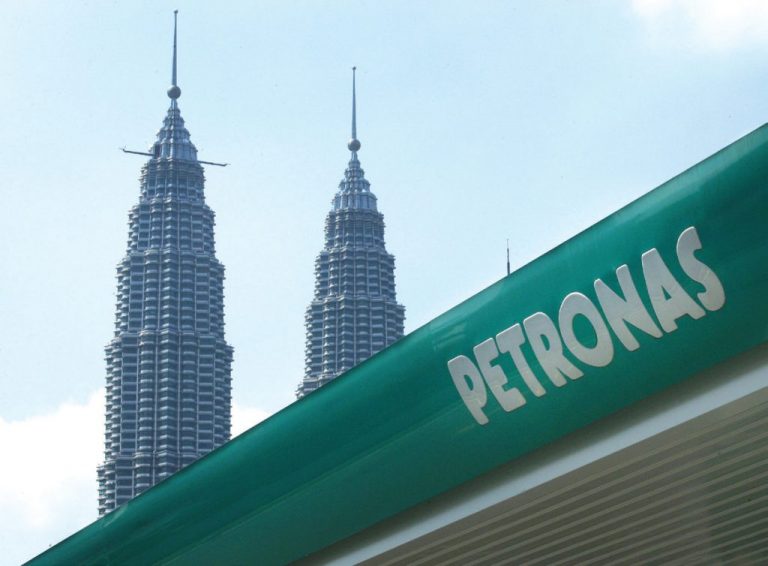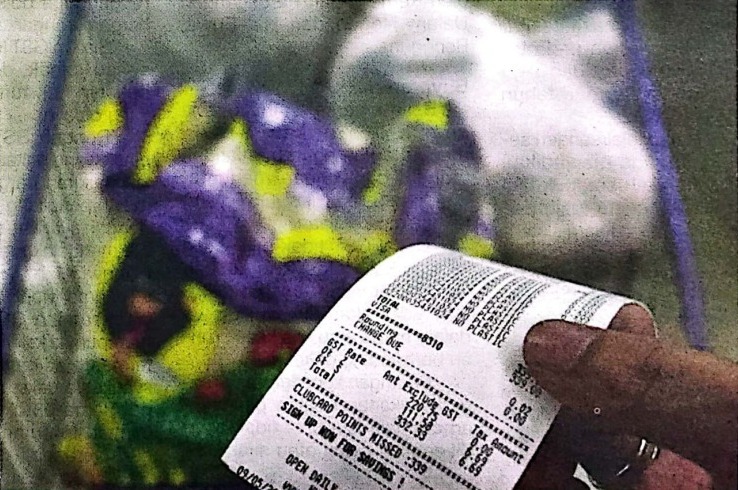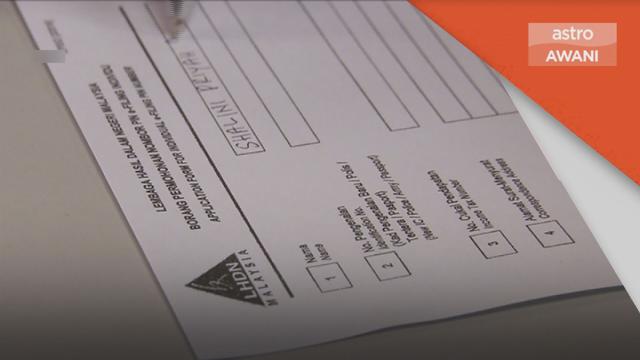NATIONAL oil company Petroliam Nasional Bhd (Petronas) is expected to pay a lesser dividend to the government for 2022 compared to RM25 billion in 2021 (2020: RM34 billion) following the introduction of a one-off Cukai Makmur on the company’s chargeable income above RM100 million under Budget 2022.
Malaysian Association of Tax Accountants deputy secretary general
MEDIA
MEDIA
Petronas expected to pay lower dividend on Cukai Makmur introduction

Fitch believes the govt will support Petronas in maintaining a healthy credit profile and continuing its investments
by NUR HANANI AZMAN / pic by BLOOMBERG
NATIONAL oil company Petroliam Nasional Bhd (Petronas) is expected to pay a lesser dividend to the government for 2022 compared to RM25 billion in 2021 (2020: RM34 billion) following the introduction of a one-off Cukai Makmur on the company’s chargeable income above RM100 million under Budget 2022.
Malaysian Association of Tax Accountants deputy secretary general Dr Mohd Fairuz A Razak said looking at the trend, Petronas dividends in previous financial years are getting lower.
“We cannot rely on Petronas dividends forever. Natural resources will deplete eventually. We need to move to a progressive tax nation and broader consumption of tax and digitalise the entire system to spur government revenue.
Tax-raising measures are necessary to narrow the budget deficit and the proposals may contribute significant tax revenue to the country, but potentially only in the short term,”
he told The Malaysian Reserve (TMR) yesterday.
Therefore, there is a need to formulate longer-term measures that will generate a sustainable growth in tax revenue, while maintaining the country’s competitiveness without jeopardising stability, Mohd Fairuz said.
“The key to achieving this would be to transform and digitise the tax administration system, progressive tax measures, narrow the GDP to tax and broaden the consumption tax base.
There are various examples of jurisdictions significantly increasing their tax revenues while clamping down on evasion and leakages, simply by automating technological tools such as software, e-invoicing and data analytics,”
he added.
Fitch Ratings director, Asia-Pacific corporate ratings, Shahim Zubair expects the current strong oil prices to support Petronas’ additional dividend payment of RM7 billion (declared in August 2021), which will bring total dividends in 2021 to RM25 billion.
He said Petronas originally cut its 2021 dividends to RM18 billion (2020: RM34 billion including RM10 billion of additional dividend) after subdued 2020 earnings that were affected by the Covid-19 pandemic.
“We estimate annual dividends to remain at RM24 billion-RM26 billion in the medium term, subject to crude oil prices, investments and the impact on its financial profile.
Fitch believes the government will support Petronas in maintaining a healthy credit profile and continuing its investments to improve earnings due to its importance to national revenues,”
he told TMR.
Shahim said the government has allowed Petronas to cut dividends to maintain its financial profile in previous downturns and he expects the flexibility to continue.
The government has proposed the Cukai Makmur or a one-off windfall tax on companies that generate income above RM100 million at 33%, with a 24% tax rate for chargeable income to the first RM100 million for the year of assessment 2022.
JF Apex Securities Bhd head of research Lee Chung Cheng said this will mostly be taxing on large-cap listed firms and multinational companies.
“Budget implications-wise, not much measures on oil and gas, hence impacting Petronas directly. Moreover, we believe the government will be supportive of Petronas’ strategic plan of conserving more cash to continue incurring capital expenditure (capex) in renewable energy (RE) business,”
he said.
According to Rakuten Trade Sdn Bhd’s head of research Kenny Yee, Malaysia can recoup at least RM8.5 billion in additional revenue through Cukai Makmur.
“From Rakuten’s calculation, at least 120 companies would be taxable under Cukai Makmur. I think for the FTSE Bursa Malaysia KLCI constituents, all companies will be impacted,”
he said during a post-Budget 2022 commentary.
Moody’s Analytics economist Denise Cheok said income tax is expected to fund most of the government spending and rising oil prices will also boost revenue for state-owned Petronas, which will help cover some of the fiscal deficit in the form of dividends to the government.
“The expansionary budget for next year supports our brightening outlook for the Malaysian economy. The resumption of domestic and international travel, as well as rising commodity prices, will help lift the economy out of its pandemic-induced funk.
We forecast GDP to grow 5% in 2022 from a projected 3.5% in 2021. An upward revision might be on the books, should Malaysia’s key manufacturing and services sectors continue to outperform expectations in the coming months,”
he said in an analysis titled “Malaysia Unveils Largest-Ever Budget”.
Bank Islam Malaysia Bhd chief economist Dr Mohd Afzanizam Abdul Rashid said the prevailing crude oil prices are set to remain high between this year and next, which is expected to be favourable for the government’s coffers and will constitute around 18% to 19% of total government revenue next year.
“This would give some fiscal space for the government, while the recovering economy would mean higher profits and better labour market conditions that would result in higher tax collection.
On Petronas, I suppose they will communicate their capex plan as they need to invest in their productive capacity and to transition themselves into the RE space. I suppose they will strike the right balance,”
he told TMR.
Petronas expected to pay lower dividend on Cukai Makmur introduction

Fitch believes the govt will support Petronas in maintaining a healthy credit profile and continuing its investments
– by NUR HANANI AZMAN / pic by BLOOMBERG
NATIONAL oil company Petroliam Nasional Bhd (Petronas) is expected to pay a lesser dividend to the government for 2022 compared to RM25 billion in 2021 (2020: RM34 billion) following the introduction of a one-off Cukai Makmur on the company’s chargeable income above RM100 million under Budget 2022.
Malaysian Association of Tax Accountants deputy secretary general Dr Mohd Fairuz A Razak said looking at the trend, Petronas dividends in previous financial years are getting lower.
“We cannot rely on Petronas dividends forever. Natural resources will deplete eventually. We need to move to a progressive tax nation and broader consumption of tax and digitalise the entire system to spur government revenue.
“Tax-raising measures are necessary to narrow the budget deficit and the proposals may contribute significant tax revenue to the country, but potentially only in the short term,”
he told The Malaysian Reserve (TMR) yesterday.
Therefore, there is a need to formulate longer-term measures that will generate a sustainable growth in tax revenue, while maintaining the country’s competitiveness without jeopardising stability, Mohd Fairuz said.
“The key to achieving this would be to transform and digitise the tax administration system, progressive tax measures, narrow the GDP to tax and broaden the consumption tax base.
“There are various examples of jurisdictions significantly increasing their tax revenues while clamping down on evasion and leakages, simply by automating technological tools such as software, e-invoicing and data analytics,”
he added.
Fitch Ratings director, Asia-Pacific corporate ratings, Shahim Zubair expects the current strong oil prices to support Petronas’ additional dividend payment of RM7 billion (declared in August 2021), which will bring total dividends in 2021 to RM25 billion.
He said Petronas originally cut its 2021 dividends to RM18 billion (2020: RM34 billion including RM10 billion of additional dividend) after subdued 2020 earnings that were affected by the Covid-19 pandemic.
“We estimate annual dividends to remain at RM24 billion-RM26 billion in the medium term, subject to crude oil prices, investments and the impact on its financial profile.
“Fitch believes the government will support Petronas in maintaining a healthy credit profile and continuing its investments to improve earnings due to its importance to national revenues,”
he told TMR.
Shahim said the government has allowed Petronas to cut dividends to maintain its financial profile in previous downturns and he expects the flexibility to continue.
The government has proposed the Cukai Makmur or a one-off windfall tax on companies that generate income above RM100 million at 33%, with a 24% tax rate for chargeable income to the first RM100 million for the year of assessment 2022.
JF Apex Securities Bhd head of research Lee Chung Cheng said this will mostly be taxing on large-cap listed firms and multinational companies.
“Budget implications-wise, not much measures on oil and gas, hence impacting Petronas directly. Moreover, we believe the government will be supportive of Petronas’ strategic plan of conserving more cash to continue incurring capital expenditure (capex) in renewable energy (RE) business,”
he said.
According to Rakuten Trade Sdn Bhd’s head of research Kenny Yee, Malaysia can recoup at least RM8.5 billion in additional revenue through Cukai Makmur.
“From Rakuten’s calculation, at least 120 companies would be taxable under Cukai Makmur. I think for the FTSE Bursa Malaysia KLCI constituents, all companies will be impacted,”
he said during a post-Budget 2022 commentary.
Moody’s Analytics economist Denise Cheok said income tax is expected to fund most of the government spending and rising oil prices will also boost revenue for state-owned Petronas, which will help cover some of the fiscal deficit in the form of dividends to the government.
“The expansionary budget for next year supports our brightening outlook for the Malaysian economy. The resumption of domestic and international travel, as well as rising commodity prices, will help lift the economy out of its pandemic-induced funk.
“We forecast GDP to grow 5% in 2022 from a projected 3.5% in 2021. An upward revision might be on the books, should Malaysia’s key manufacturing and services sectors continue to outperform expectations in the coming months,”
he said in an analysis titled “Malaysia Unveils Largest-Ever Budget”.
Bank Islam Malaysia Bhd chief economist Dr Mohd Afzanizam Abdul Rashid said the prevailing crude oil prices are set to remain high between this year and next, which is expected to be favourable for the government’s coffers and will constitute around 18% to 19% of total government revenue next year.
“This would give some fiscal space for the government, while the recovering economy would mean higher profits and better labour market conditions that would result in higher tax collection.
On Petronas, I suppose they will communicate their capex plan as they need to invest in their productive capacity and to transition themselves into the RE space. I suppose they will strike the right balance,”
he told TMR.
Media Terkini

SYOR CUKAI LEBIH ADIL

Bajet 2023 | Tangani ketirisan, halusi sistem percukaian | Astro Awani

PERSATUAN AKAUNTAN PERCUKAIAN MALAYSIA (M.A.T.A)
Block 1D, 27-1, Jalan Wangsa Delima 12,
Wangsa Link, Pusat Bandar Wangsa Maju
53300 Kuala Lumpur.

WAKTU OPERASI
Isnin hingga Jumaat
9.00 pagi – 5.00 petang
![]()
HUBUNGI KAMI
E-mel: mata@mata.org.my
Tel: 03-4149 9599 atau 5078
Faks: 03-4149 7577
HP: 016-240 9343

PERSATUAN AKAUNTAN PERCUKAIAN MALAYSIA (M.A.T.A)
Block 1D, 27-1, Jalan Wangsa Delima 12,
Wangsa Link, Pusat Bandar Wangsa Maju
53300 Kuala Lumpur.

WAKTU OPERASI
Isnin hingga Jumaat
9.00 pagi – 5.00 petang
![]()
HUBUNGI KAMI
E-mel: mata@mata.org.my
Tel: 03-4149 9599 atau 5078
Faks: 03-4149 7577
HP: 016-240 9343

